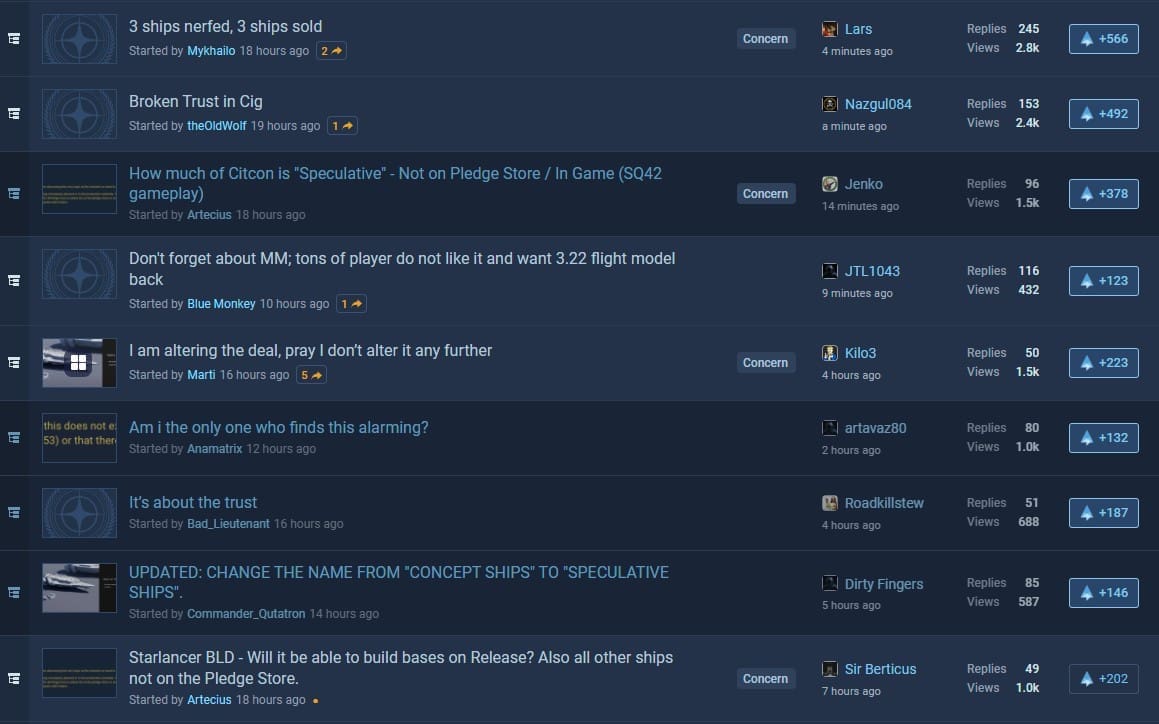Cloud Imperium Games (CIG) has always touted Star Citizen as the ultimate space simulation experience, promising a persistent universe, realistic space mechanics, and an immersive narrative with Squadron 42. Yet, as the years pass, the company’s reputation among its backers is souring, with frustration mounting over CIG’s business practices and lack of transparency. With growing community dissent evident on Spectrum and social media, CIG is struggling to retain the trust that has been its foundation since Star Citizen’s record-breaking crowdfunding campaign.
The Latest Controversy: Selling Solutions to Created Problems
One of the most glaring examples of community frustration stems from the recent release of the Argo ATLS—a mech walker with a tractor beam. Initially, the game’s hand-held tractor beams were nerfed, making specific gameplay mechanics harder to perform without the ATLS. The timing felt suspicious to many, leading players to accuse CIG of intentionally creating problems only to sell the solution. This approach, seen by some as manipulative, has added to the perception that CIG prioritises sales over genuine game development.
Ship Nerfs and Price Hikes: Cashing In on Replacements
In another questionable move, CIG has nerfed famous ships only to introduce replacements with similar functionalities but at a higher cost. Ships like the Corsair and Redeemer have seen tweaks that impact their effectiveness in gameplay, while newer ships with similar roles are priced at a premium. This approach pressures existing backers into spending more and fosters distrust, as players feel manipulated into purchasing new ships to replace the ones they’ve invested in.
To make matters worse, CIG has increased the prices of digital ships without substantial justification. These are virtual assets that, unlike physical products, do not incur manufacturing costs. The community’s sentiment is that these price hikes are exploitative, leveraging FOMO (fear of missing out) to drive sales rather than delivering added value.
The Endless Sales Cycle: Hype Over Substance
Since Star Citizen began, CIG has relied heavily on limited-time ship sales, exclusive events, and other FOMO-driven marketing techniques to fund the game’s development. While this strategy has undeniably generated revenue, it has also created an environment where development updates feel secondary to sales pitches. Every quarter, backers see new ships, new skins, and new “limited offers,” but the core game—the persistent universe—continues to lag behind its promises.
Instead of addressing these concerns, CIG’s communication has primarily focused on hyping upcoming ship releases or limited-time events, while substantial gameplay features or quality-of-life improvements remain elusive. As a result, backers feel as though they’re stuck in an endless cycle of sales pitches, with genuine progress taking a back seat to monetisation.
Broken Trust and Declining Community Morale
The lack of open communication from CIG has exacerbated these issues. Developer statements have often been vague, with timelines repeatedly pushed back and features delayed. Recently, CIG clarified that specific promises were “speculative,” leading players to question the reliability of previous assurances. This ambiguity erodes the trust initially built on a foundation of openness between the developers and the community.
Forums and Spectrum are now filled with threads expressing disappointment, frustration, and disillusionment. Many backers feel abandoned as if their loyalty has been taken for granted. The game’s core supporters, who once championed Star Citizen as a revolutionary project, are now some of its harshest critics. They point out that CIG’s focus appears to have shifted from fulfilling the original vision to monetising a seemingly perpetual development cycle.
The Need for Transparency and a Shift in Priorities
For Star Citizen to regain the trust of its community, CIG needs to take immediate steps towards greater transparency. Acknowledging mistakes, providing clear timelines, and prioritising the delivery of promised gameplay features over new sales would go a long way in rebuilding goodwill. Moreover, offering backers meaningful insights into development challenges and progress could reassure them that their investment is respected.
After 12 years, the community has proven its patience, but that patience has limits. CIG has built an incredibly ambitious project, but without meaningful changes to how it communicates and operates, it risks losing the support of its most dedicated fans.
CIG could turn the tide by stepping back from aggressive marketing tactics and refocusing on genuine development, restoring faith and revitalising the community’s enthusiasm for Star Citizen. Otherwise, the game risks becoming a cautionary tale of what happens when monetisation precedes meaningful progress.





